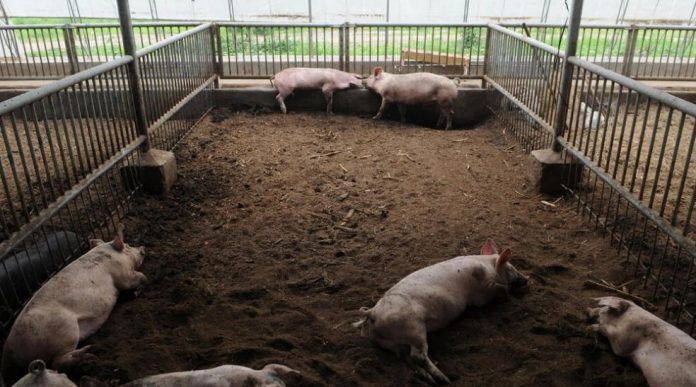A new definition of death? Research that revives the cell…
- August 12, 2022
- 0
AFP A group of scientists has managed to maintain blood flow and function for several hours in cells in the body of recently deceased pigs. That’s according to
AFP A group of scientists has managed to maintain blood flow and function for several hours in cells in the body of recently deceased pigs. That’s according to

A group of scientists has managed to maintain blood flow and function for several hours in cells in the body of recently deceased pigs. That’s according to a study published Wednesday.
In 2019, a team of researchers in the United States stunned the scientific community by restoring cell function to pigs’ brains hours after they were beheaded.
In their latest research, published Wednesday in the journal Nature, the same scientists sought to extend the technique throughout the animal’s entire body.
They caused heart attacks in anesthetized pigs, stopping blood flow and depriving their cells of oxygen (without oxygen, mammalian cells die).
An hour later, they injected the carcasses with a liquid containing pig blood (taken while alive) and a synthetic form of hemoglobin, the oxygen-carrying protein in red blood cells.
They also injected drugs that protect cells and prevent blood clots from forming.
The blood started flowing again and many cells began to function again. Even in vital organs like the heart, liver and kidneys for the next six hours.
“These cells were working after hours when they shouldn’t have been. This shows that cell loss can be stopped.” This was said at a press conference by the study’s lead author and a researcher at Yale University, Nenad Sestan.
Under the microscope, it was difficult to distinguish a normal, healthy organ from a post-treated organ, added David Andrijevic, co-author of the study from Yale.
The team said they hoped the technique, called OrganEx, could be used to “save organs” by prolonging their function.
This can save the lives of people waiting for transplants.
According to Anders Sandberg of the University of Oxford, OrganEx could also enable new forms of surgery by giving “physicians more room to move.”
But the technique raises a host of medical, ethical, and even philosophical questions.
For example, it may “increase the risk of resuscitated people being unable to exit life support”. This was prompted by Brendan Parent, a bioethicist at New York University’s Grossman School of Medicine, in a comment published in parallel by Nature.
According to Sam Parnia of the same university’s Department of Medicine, this “truly remarkable” study also demonstrates that “death is a curable biological process that can be reversed within hours.”
So much so that Benjamin Curtis, a philosopher specializing in ethics at the British Nottingham Trent University, thinks it may be necessary to update the medical definition of death.
“If we took this work into account, there wouldn’t have been many processes that we thought were irreversible,” he told AFP.
“And according to the current medical definition of death, a person may not actually be dead for hours,” because some processes continue for a period of time beyond the cessation of bodily functions.
The discovery could also spark a debate about the ethics of these procedures. Especially since almost all pigs made vigorous head and neck movements during the experiment. That’s according to one of the study’s authors, Stephen Latham.
“It was pretty surprising to the people in the room,” he told reporters.
The origin of these movements is unknown. But he never made sure that no electrical activity was recorded in the animals’ brains. This excludes the return to consciousness.
But these head movements are “a big concern,” said Benjamin Curtis. Recent neuroscientific research has suggested that “conscious experience can continue even when electrical activity in the brain cannot be measured.”
“So it’s possible that this technique could cause pain in pigs and cause pain in humans if used on them.” He added that and called for further research.
Source: El Nacional
Alice Smith is a seasoned journalist and writer for Div Bracket. She has a keen sense of what’s important and is always on top of the latest trends. Alice provides in-depth coverage of the most talked-about news stories, delivering insightful and thought-provoking articles that keep her readers informed and engaged.